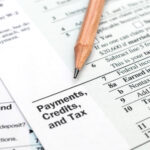By Terry Barrett, CPA, Tax Senior Manager

By Terry Barrett, Tax Senior Manager | State & Local Tax Team
With the new year came notices from localities to businesses regarding their annual business license and property tax filing requirements. The due date for filing the business license applications and paying the taxes is generally March 1 for the City of Richmond and surrounding counties. Local property tax return due dates are generally on March 1, but with payments not due until later in the year.
Business Licenses
We advise clients to take the time to focus on their BPOL returns – consider the appropriate status of receipts, and applicable deductions and exclusions. We also suggest that consideration be given as to whether more than one classification may be appropriate to the business. This could result in a reduced BPOL liability. (See previous blogs on business licenses and some of the rules relating thereto.)
In addition, some “businesses” may be unaware of their licensure and reporting requirements. They may be new to Virginia or thought the nature of their business activity did not rise to the level of a licensable business. Va. Code § 58.1-3701 defines “business” as a “course of dealing that requires the time, attention and labor of the person so engaged for the purpose of earning a livelihood or profit. It implies a continuous and regular course of dealing, rather than an irregular or isolated transaction.” Thus, skin care consultants who sell on commission to customers, independent contractors (e.g., IT, health care), and others who are performing projects and other work for individuals or businesses may not view themselves as a business per se because they work out of their homes or otherwise, likely are subject to business license requirements. It is possible the gross receipts of such individuals may fall under the thresholds that are taxed by a locality (e.g., $100,000 in Henrico County), however, they may still have a reporting and license requirement. It is noteworthy the City of Richmond requires businesses with gross receipts greater than or equal to $5,000 but less than $100,000 to pay only the $30 license fee.
Also of note is that the City of Richmond does allow businesses locating therein to have a two-year BPOL exclusion — they are still subject to the $30 per year license fee and licensing requirements but are exempt from the gross receipts portion of the tax. Certain criteria must be met to take advantage of this special treatment.
Property Tax
Local property taxes may be imposed on real property, business tangible personal property, machinery and tool, motor vehicles, and various other categories of property. We are focusing in this article on business tangible personal property taxes. We previously addressed machinery and tools taxation in another blog, which explains the classification of the different types of property owned by manufacturers and the potential tax savings resulting from a review of classifications. If you are a manufacturer you may want to read it.
Business tangible personal property (BPPT) is taxable in the locality in which it is located on Tax Day, or January 1. Business property tax returns/information generally is due back to the City of Richmond and localities on March 1. The localities then prepare assessments based upon the information provided and send out tax bills.
In Henrico County, payments for BPPT are due on
June 5th and December 5th.In the City of Richmond, all personal property taxes, including motor vehicles, business personal property and machinery and tools taxes are due June 6th.
The primary issues we find with business personal property are (i) property’s location, (ii) information on acquisitions and disposals of property, and (iii) the valuation of the property after a merger/acquisition/asset sale. Often businesses may have moved or have equipment that has moved, e.g., equipment in a data center that is moved to another data center in another locality or state. Maintaining an accurate accounting of the locations of business assets is important so they can be properly reported for local tax purposes. The same holds true for accurately recording acquisitions and dispositions. Some businesses have assets on their property tax records that were disposed of some time ago – now is a good time to update that information.
Assets that may be purchased from another business that is closing or acquired as part of an acquisition/ merger agreement may be inappropriately valued by the purchaser/acquirer. By law, property is valued for local property tax purposes at its fair market value. This has been interpreted by the Department of Taxation and the courts to mean original cost, as adjusted each year according to the localities’ depreciation schedules. It is not an allocation of the purchase price among the assets. In valuing machinery and tools, a locality is required by law, upon the written request of a taxpayer to consider any bona fide, independent appraisal presented by a locality. Thus, an appraisal may be worth considering if the purchase price is substantially less than the fair market value of the machinery and tools. While localities are required to consider the appraisals, they may not necessarily accept them.
Special property tax rules may apply to certain types of machinery and tools, watercraft, aircraft, and vehicles above certain sizes.
In Summary
It is local tax time in Virginia. Do not overlook filing deadlines (as penalties may apply) and be sure to give the local taxes the proper amount of attention.
It is noteworthy that there are other local taxes not covered in this article that may be applicable to individuals or businesses. We suggest you consult with your local Commissioner of Revenue’s office or reach out to your Keiter advisor with questions or contact us.
Sources
- Various provisions of Chapters 35 and 37 of the Code of Virginia
- City of Richmond Website
- Henrico County Website
About the Author
The information contained within this article is provided for informational purposes only and is current as of the date published. Online readers are advised not to act upon this information without seeking the service of a professional accountant, as this article is not a substitute for obtaining accounting, tax, or financial advice from a professional accountant.



